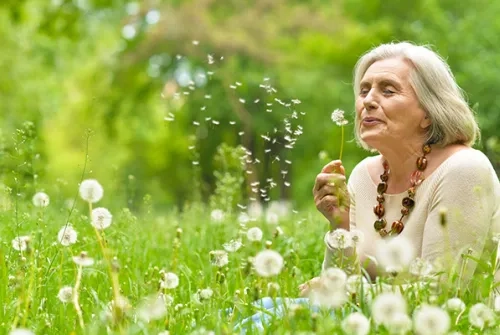Alo Yeditepe
Alo Yeditepe
Summer Infections
Summer is here. Despite its positive aspects, hot weather also brings some risks to our health.
Dehydration, sunstroke and burns, nose bleeding, skin diseases such as rash and fungus, digestive system diseases caused by unclean water and food consumption, summer diarrhea, outdoor activities and bee, insect, snake, scorpion stings, tick sticking, eye, ear and skin infections caused by swimming in the pool, sea urchin sting or jellyfish crash are among the common problems seen in the summer months.
Necessary Precautions Should Be Taken for Summer Infections
Yeditepe University Hospitals Infectious Diseases and Clinical Microbiology Specialist Prof. Dr. Meral Sönmezoğlu says, "These problems are severe, which can result in death, as the elderly, young children and those whose immune system is weakened due to different diseases are more susceptible to summer diseases. It is very important to be informed about summer diseases and to take the necessary precautions.”
In summer, food poisoning and diarrheal intestinal infections increase with the consumption of foods that have been left in hot weather. Young children and people over the age of 65 are more susceptible to food poisoning. People with weakened immune systems can also experience severe food poisoning.
Bacteria Begin to Reproduce in Summer
Keeping food at room temperature in the summer is seen as the most important reason for bacteria to grow on them. In foods that wait for more than 20 minutes at room temperature, bacteria begin to multiply. Dairy products (ice cream, desserts) meat, fish and chicken products are said to be the fastest bacteria-producing foods, and they should definitely not be kept outside the refrigerator for more than an hour. Diarrheal diseases such as food poisoning and typhoid-dysentery-tourist diarrhea are developing with products kept in the open. Food reaches ambient temperature 20 minutes after it is removed from the refrigerator. With the growth of bacteria in the food, intestinal inflammation and food poisoning occur due to both bacteria and toxins, and diarrhea, abdominal pain, nausea, and vomiting develop. While these symptoms are short-lived in some people, they can be seen for a long time in the elderly and infants.
Dehydration Causes Unconsciousness
In hot weather, everyone needs more water. Inadequate intake of water and electrolytes lost by heat stroke and sweating leads to kidney failure due to the deterioration of dehydrated organs. Tongue dries, skin wrinkles, blurring of consciousness develops. People need to drink water right away. If the person is not able to drink water, it is recommended to take them to the hospital and give them intravenous fluids. Water loss is dangerous, especially for children under the age of 5, elderly people over the age of 65 and patients with impaired immune systems. Renal dysfunction due to nausea, vomiting and dehydration that cannot drink
water is considered as the most striking symptom. He is developing renal failure too severe to urinate. It is necessary to hospitalize these patients and give them treatment that will correct the water-electrolyte balance intravenously.
Bee Stings Can Cause a Severe Allergic Reaction
Being outdoors and in green areas in the summer can lead to problems such as stinging or biting ticks, bees, wasps, mosquitoes, horse flies, flies, fleas, and spiders. A bee sting can cause a severe allergic reaction. It is important to pay attention to the following:
- Open shoes and bare feet should not be walked on the grass
- Clothes that fully cover the arms and legs should be worn at the picnic
- Food and drinks should not be left open
- Perfume, fragrant cream, spray should not be used when going to open areas
- Light-colored clothes should be worn. Do not wear vibrant colors that attract insects
- Keep windows of homes and cars closed
- Keep insect nests (beehives) away from trash cans
Practical Solution to Nose Bleeding
Staying warm, high blood pressure and traumas can cause nosebleeds. In these cases, the head should be relaxed, and a nose tampon should be applied, and if the problem lasts for a long time, the patient should be admitted to the hospital.
Those Who Sweat A Lot, Beware!
Nylon-mixed clothes that do not breathe with frequent and excessive sweating can pave the way for fungal infections on the skin. Wearing cotton and comfortable clothes in hot weather and taking frequent showers prevent germs from settling on the skin.
What to Do in Case of Insect Bites?
- The bitten area should be washed with water and it should be ensured that there is no residue on the skin
- If an allergic reaction develops (swelling, redness and itching begin), ice should be applied
- If the bitten arm or leg, it should be kept at height and swelling should be prevented
- If the swelling and pain develop and continue, it should be applied to a health institution as soon as possible
- People with weak immune system (those aged over 65, those with chronic diseases, those receiving chemotherapy or cortisone treatment, etc. ) and those whose wounds do not pass in 24 hours should definitely apply to the health institution.
About
Faculty and Year of Graduation:
Medical Faculty of Ankara University, 1984
”
See Also
- What is Hepatitis B? What are its symptoms? How is it Transmitted?
- What is HMPV Virus? HMPV Symptoms and Ways of Transmission
- Why Is the Flu Lasting Longer This Year?
- What Precautions Should Be Taken Against the Cold Epidemic?
- Don't Be Late Fighting Against Diseases
- Antibiotics Kill Beneficial Bacteria, Not Viruses
- What is Hepatitis? What are the Symptoms and Treatment Methods?
- Symptoms and Treatment of Tick Bites
- Precautions Must Be Taken Against Loss of Life Due To Infection in Thalassemia
- Information on H1N1 (Swine Flu)
- Summer is Coming... Beware of food poisoning!
- Our Taboos Affect the Increase in the Number of HIV-Positive Cases in Turkey
- Strep A Symptoms and Treatment
- Do Not Put a Cigarette Butt or Pour Olive Oil or Liquid Soap on the Tick
- Reheat the Food You Cooked Only Once!
- HIV Can Be Hidden for 10 Years without Any Symptoms!
- 290 Million People Live Without Knowing They Have Hepatitis
- Things to Consider When Touching Meat at Eid
- What Is Anthrax Disease?
- The Way to Fight AIDS is to Raise Awareness First
- Still Not Too Late For Flu Vaccine
- What is Rhinovirus?
- Fighting with Thalassemia: Meral Yılmaz
- Thalassemia Spreads from the Mediterranean to the Whole of Europe with Migration!
- Early Treatment of Crimean Congo Hemorrhagic Fever is Vital
- Approximately 3 Million Patients Need Blood Transfusions Every Year in Turkey
- When to Get the Flu Vaccine
- Antibiotics Account For 14% of Prescription Costs
- West Nile Virus Replaces Malaria
- It Is Necessary to Try to Be Healthy in order to Be Protected
- A New Flu Outbreak is Expected Every 10 Years
- 63% of Vector-Borne Diseases are Caused by Lyme Disease
- Experts Warn About Flu Risk
- Mosquito Infection Risk
- Why aren’t Antibiotics Working Any More?
- The World Raises an “Alarm” on Antibiotic Resistance!
- What is COVID-19?
- The Mask Requirement was Removed and the Importance of Social Distance Increased!
- How to Prevent COVID-19 in School-Going Children
- WHO (World Health Organization) Warns for Antibiotic Resistance!
- Who Is Threatened by Monkeypox?
- Ways to Prevent Coronavirus
- Swine Flu / H1N1
- Life Returns to Normal with Caution
- What is Monkeypox Virus? What Are the Symptoms of the Monkeypox Virus?
- What is Lyme Disease?
- How to Tell if You Have a Mild Coronavirus?
- Pay Attention to These Rules for COVID-19
- Hand Sanitizer Usage Guide
- The Priority Rule for the Protection from Summer Infections is Hygiene
Alo Yeditepe




